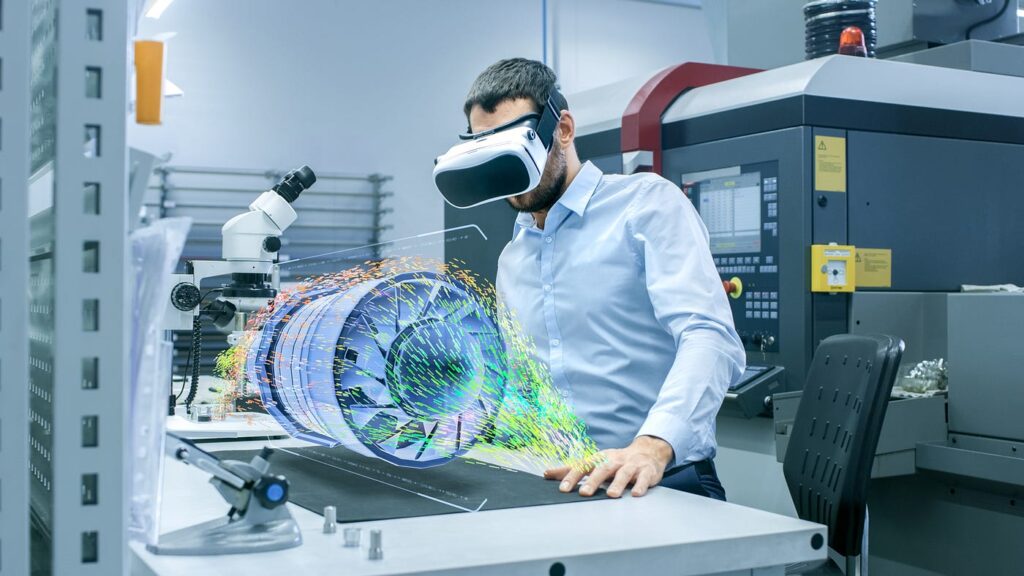The Rise of Virtual Reality and Its Applications Beyond Gaming
Virtual Reality (VR) has been a buzzword in tech circles for years, and while the gaming industry has harnessed VR's potential to create immersive worlds, the technology’s reach extends far beyond entertainment. Today, we're going to dive into the exciting applications of VR beyond gaming, highlighting how it's revolutionizing various industries and touching every aspect of our lives.

Understanding Virtual Reality
But first, for the uninitiated, what is VR? Virtual Reality is a simulated experience that can be similar to or completely different from the real world. It leverages computer technology to create a virtual environment that users can interact with using specialized hardware like headsets, gloves, and sensors.
1. Healthcare: A New Frontier
Let's kick things off with one of the most impactful applications of VR – healthcare. From training surgeons to treating patients, VR is transforming the medical field.
Surgical Training and Simulation
Traditional surgical training relied heavily on textbooks, observation, and practicing on cadavers. Today, things are different. VR allows medical professionals to undertake highly realistic simulations, performing surgeries on virtual patients without any risk. This technology provides hands-on experience, sharpens skills, and ensures that surgeons are well-prepared.
Pain Management
Another fascinating application is in pain management. VR can help distract patients from pain by immersing them in virtual worlds that are calming and soothing. For example, burn victims can experience significantly less pain during treatment by playing VR games that transport them to snowy landscapes.
Mental Health Therapy
VR is also making strides in the mental health sector. It can be used to create controlled environments to treat conditions like PTSD, anxiety, and phobias. By simulating scenarios that trigger anxiety in a controlled setting, therapists can help patients gradually overcome their fears.
2. Education: Learning Without Boundaries
Virtual Reality is revolutionizing education by creating interactive and stimulating learning environments.
Virtual Classrooms
Imagine attending a history class where you can walk the streets of Ancient Rome or a biology lesson where you can explore the human cell in 3D. VR makes learning engaging and interactive. It breaks down geographical barriers, allowing students to attend virtual classes from anywhere in the world.
Special Education
For students with special needs, VR can provide tailored educational experiences. It can create safe and controlled environments where these students can practice social skills, develop cognitive abilities, and learn at their own pace.
3. Real Estate: Walkthroughs Without the Walk
Gone are the days of scouting properties solely through photos or physical visits. VR has revolutionized the real estate market.
Virtual Property Tours
Real estate agents can now offer potential buyers virtual tours of properties. These tours allow buyers to explore homes in 3D, giving them a feel of the space without setting foot in it. This not only saves time but also allows buyers to view multiple properties in a short time.
Architectural Visualization
Architects use VR to present their designs to clients in a more immersive way. Clients can walk through their future homes or office spaces, providing valuable feedback before construction begins.
4. Training and Skill Development
VR is playing a pivotal role in specialized training and skill development across various industries.
Employee Training
Companies can use VR to create realistic training simulations. For example, firefighters are trained in VR to handle emergency situations, factory workers can practice operating heavy machinery, and customer service representatives can engage in simulated interactions.
Soft Skills Training
VR isn’t limited to technical skills. It can also be used to improve soft skills like public speaking, teamwork, and leadership. By providing realistic scenarios, employees can practice and develop these skills in a safe environment.
5. Tourism: Exploring the World Virtually
VR is changing the tourism industry, offering unique experiences to travelers and professionals alike.
Virtual Travel Experiences
For those who can't travel physically, VR offers an alternative. Virtual tours of exotic destinations, cultural landmarks, and historical sites allow people to explore the world from the comfort of their homes.
Destination Previews
Travel agencies use VR to provide previews of travel destinations. This helps customers make informed decisions about their trips, leading to higher satisfaction and fewer disappointments.
6. Arts and Entertainment: Beyond the Screen
While gaming is the most obvious application, VR has a broad spectrum of uses in arts and entertainment.
Art Galleries and Museums
Virtual reality has paved the way for virtual art galleries and museums. Art enthusiasts can now explore exhibits and collections online, providing accessibility to art and culture from anywhere in the world.
Virtual Concerts and Events
With VR, attending concerts and events has a new dimension. Live events can be streamed in VR, providing an immersive experience that's far closer to attending in person compared to traditional video streams.
The Future is Virtual
The potential applications of VR are vast, and what we've explored here is just scratching the surface. From engineering to space exploration, the use cases are expanding every day. VR is not just a trend; it's a transformative technology that's here to stay and revolutionize the way we interact with the world.
Whether you're a professional looking to adopt VR in your industry or a curious mind eager to learn about the latest tech developments, there's no denying the incredible potential of virtual reality.
For more in-depth articles on how technology is shaping our world, be sure to visit our blog. Dive into a world of knowledge and keep up with the latest trends in tech development!
Stay curious, stay informed, and always embrace innovation!
